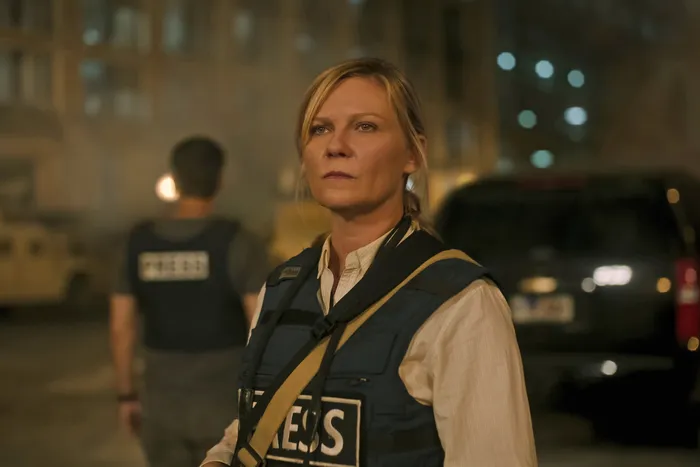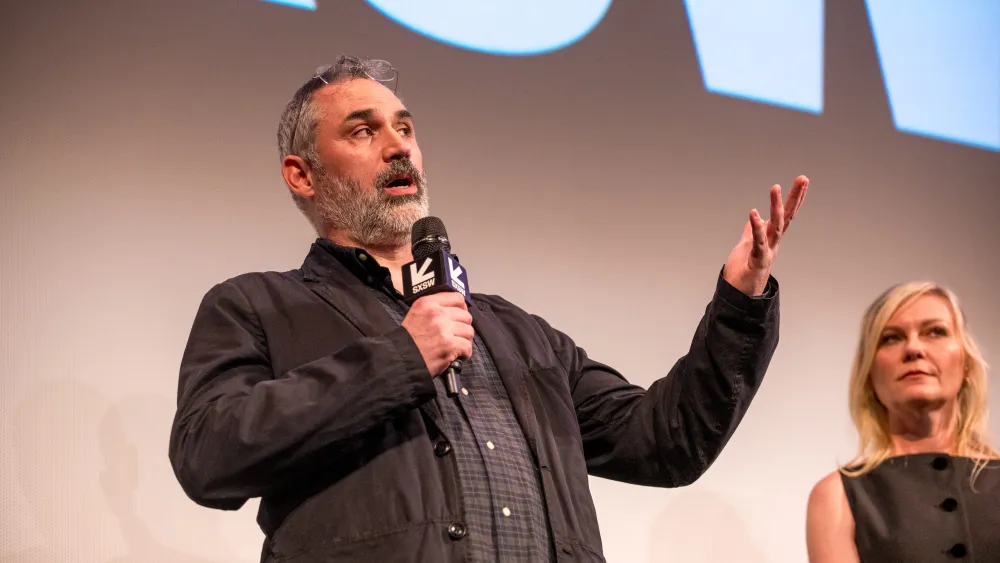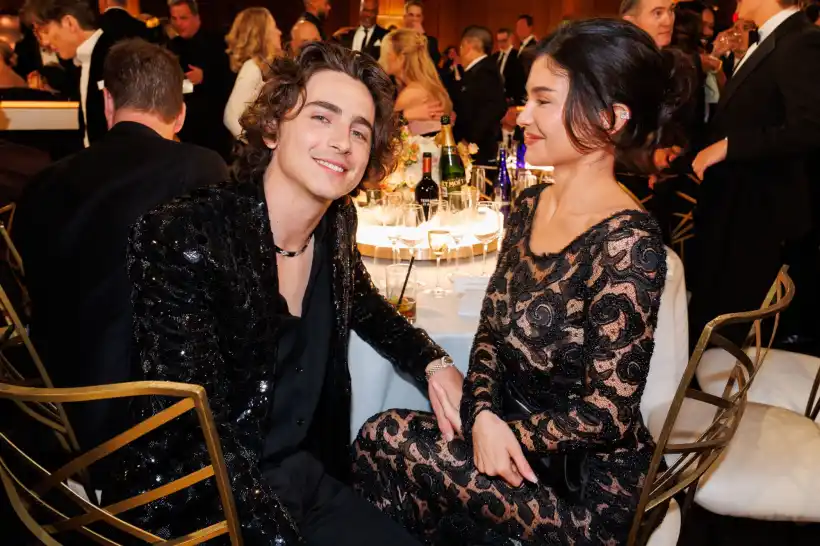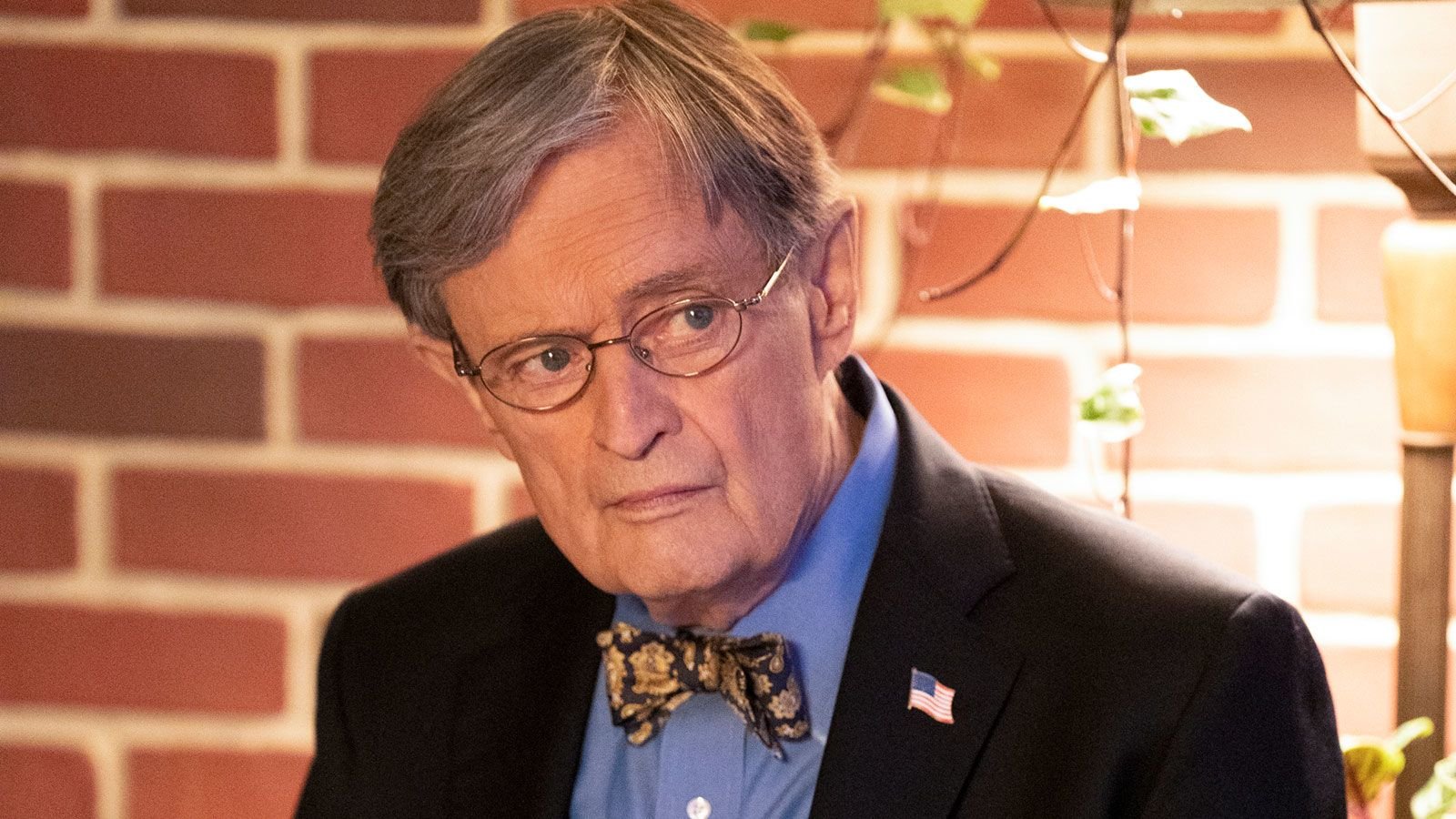Alex Garland Breaks Silence: Is “Civil War” Too Close to Home?
The ever-controversial Alex Garland is back in the spotlight, and this time, it’s not just critics – it’s the entire nation. His latest film, “Civil War,” has tongues wagging after its explosive premiere at SXSW. Now, with accusations of sensationalism swirling, Garland himself has addressed the controversy, and his words are more chilling than any on-screen battle.
Reality vs. Reel Life
Garland, known for pushing boundaries, has always been a provocateur. But “Civil War” seems to have struck a nerve. The film, shrouded in secrecy, reportedly depicts a future America on the brink. Whispers of violence, societal collapse, and a chilling echo of our own historical divisions have some audiences both terrified and questioning – is this entertainment, or a terrifying prophecy?
Garland’s Defense: A Mirror to Ourselves
In a rare interview, Garland addressed the controversy head-on. “The purpose of art,” he stated, “is to hold a mirror to society, even if the reflection is ugly.” He went on to say that “Civil War” isn’t meant to be a prediction, but a “cautionary tale.” His words, however, offered little comfort. Is the film a mere “what if,” or a glimpse into a future fueled by our current political and social tensions?
Fueling the Fire
Garland’s silence on specific plot details only intensifies the anxiety. The cast, rumored to include A-listers known for their intense portrayals, remains shrouded in secrecy, adding another layer of intrigue. Is this a deliberate ploy to heighten anticipation, or a calculated strategy to avoid further inflaming tensions?
A Nation Divided, Even in Fiction
The controversy surrounding “Civil War” exposes a deeper unease within the American psyche. Are we so fractured as a nation that a fictional portrayal of division feels dangerously real? Garland’s film may not yet be upon us, but the battle lines seem to be drawn – between those who see it as art and those who fear it as a premonition.
The Wait and the Worry
With a release date strategically undisclosed, “Civil War” has become more than just a film. It’s a national conversation starter, a spark igniting anxieties about the future we’re building. Will the film be a cathartic release, or a terrifying confirmation of our worst fears? Only time, and Alex Garland, will tell.
Alex Garland’s ‘Civil War’ Premieres at SXSW, Sparking Conversations on War, Journalism, and Populism

Austin, TX The world premiere of Alex Garland’s latest film, “Civil War,” took place at SXSW, leaving audiences in deep thought about the near-future U.S. on the brink of a civil war. The film features Texas and California, two populous states, seceding from the U.S. and focuses on a group of journalists documenting the conflict. Garland aims to spark a conversation without asserting too much or explaining the politics that led to the chaos.
The film’s backdrop features a divided America, with the two states forming an unusual alliance. Garland chose not to delve into the specifics of the political context but instead aimed to create a film that finds common ground among viewers. He shared, “I wanted this film to find points of agreement between everybody, hopefully.”
“Civil War” features Kirsten Dunst, Cailee Spaeny, Wagner Moura, and Stephen McKinley Henderson as war journalists, with Nick Offerman as the U.S. president. The actors shared their experiences preparing for their roles, focusing on understanding the characters’ motivations and the essence of journalism.
Kirsten Dunst, who plays Lee, a journalist known for documenting a significant event, said, “I would look at Alex a lot—the way he wrapped his strap around his wrist, how you held your camera.” Cailee Spaeny, who portrays a young photojournalist idolizing Lee, shared, “getting to figure out Jessie through her love of photography and reading up on Lee Miller, Don McCullin, and Lynsey Addario and finding the parallels between me and her.”
The film sheds light on the role of journalists in society, with Garland expressing his admiration for the profession and his concerns about the current state of journalism. “In any kind of free country, journalists are not a luxury. They’re a necessity,” he said. “Now, journalists have done some of the work to be distrusted themselves, but a lot of other interested parties have been complicit in making them untrusted. I think it’s unhealthy, and I think it’s wrong.”
Garland also aimed to convey an anti-war stance through the film, avoiding the allure of war and its adrenaline-fueled nature. He shared, “We were going to make all sorts of efforts to avoid that and make this not seem like a good idea—to have a civil war.”






Thanks for sharing. I read many of your blog posts, cool, your blog is very good.